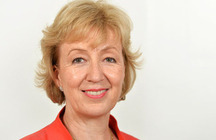Lord Bruce of Bennachie – 2016 Parliamentary Question to the Department for International Development
The below Parliamentary question was asked by Lord Bruce of Bennachie on 2016-09-14.
To ask Her Majesty’s Government what support they provide to deaf people in developing countries.
Baroness Anelay of St Johns
People with disabilities are the largest minority group globally. An estimated one billion people have a disability globally, 80% of whom live in developing countries. People with disabilities are often the poorest in their community and many face considerable levels of stigma, discrimination and persecution.
DFID follows a ‘twin-track’ approach to disability inclusion. This means we aim to attach priority to disability in all our policies and programmes as well as supporting disability-targeted programmes.
Over the last two years, DFID has strengthened our capacity to work on disability inclusion, including by appointing a director-level champion, employing three full-time staff to work solely on disability, and developing a group of Internal Disability Expert Advisers from across our organisation.
DFID’s efforts to date have included:
- Furnishing schools with equipment and training teachers so children with disabilities can get a quality education.
- Providing grants to local Disabled People Organisations, allowing people with disabilities to come together and lobby governments on the issues which affect them.
- Collecting data on disability so we can fully understand the scale of impact and how best to support those people it affects.
For example, two projects in the UK’s flagship Girls Education Challenge are exclusively focused on addressing the issue that girls with disabilities are less likely to access education. Specific interventions include provision of assistive devices and scholastic materials for girls with hearing impairments and improvement of teacher skills to enable them to communicate in sign language, which has encouraged parents to enrol their children in schools.


